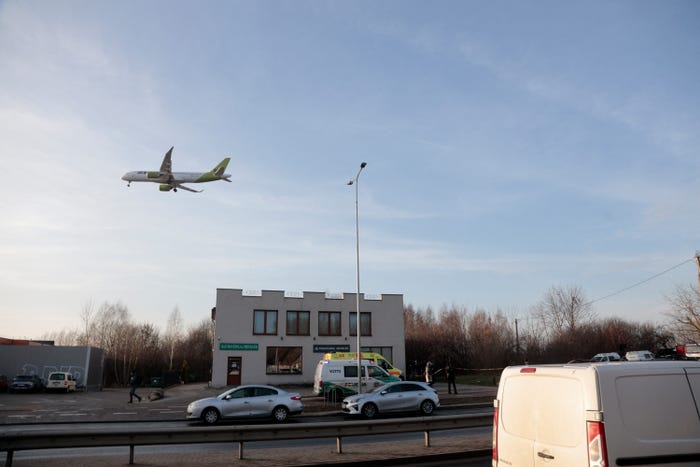URGENT UPDATE: Lithuania has closed Vilnius Airport for the third consecutive night due to balloon incursions from Belarus, raising serious air safety concerns. The closures, confirmed by officials, affect 47 flights and highlight escalating tensions in the region.
Authorities announced on Sunday that the airspace around Vilnius Airport would be temporarily restricted from 9:42 p.m. to 4:30 a.m. the following morning, due to the presence of balloons potentially linked to smuggling operations. Lithuanian Prime Minister Inga Ruginiene stated that these balloons are likely being used to transport contraband cigarettes, while also emphasizing the threat they pose to aviation safety.
In an official statement, Ruginiene accused the Belarusian government, led by Alexander Lukashenko, of allowing these balloons to “run wild.” The situation has prompted Lithuania to temporarily close its borders with Belarus as its security council convenes on Monday to discuss further actions.
This incident marks a troubling trend for the NATO member, which has reported balloon incursions from Belarus with increasing frequency. In September 2024, authorities revealed that approximately 250 balloons crossed into Lithuania within a single month. Just days prior to this latest airport closure, officials detected “several hundred markers” in one night, suspected to be smuggling balloons.
Lithuanian authorities have called for tech companies and defense contractors to propose solutions for tracking and neutralizing these airborne threats. The situation is exacerbating existing tensions within the European NATO community, particularly following a series of drone incursions over Poland attributed to Russian operations involving Belarus.
In a broader context, balloon incursions are not isolated to Lithuania. Last summer, South Korea accused North Korea of deploying hundreds of balloons filled with trash into its territory, viewed as a tactic of gray warfare.
The press team for Lukashenko’s office has not yet responded to requests for comment on these developments. As this situation unfolds, all eyes are on Lithuania and its strategic response to these ongoing security challenges.
Stay tuned for more updates as authorities work to address this emerging threat.







